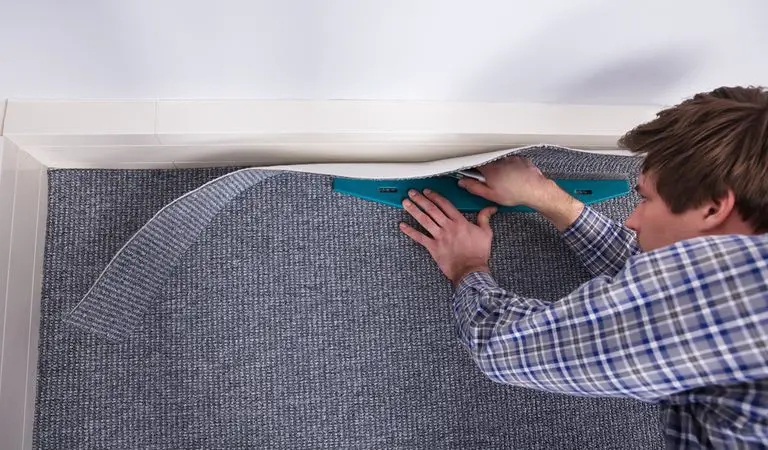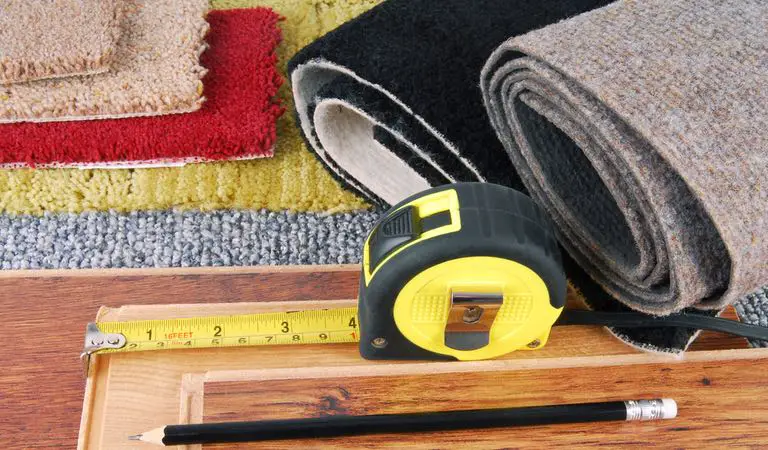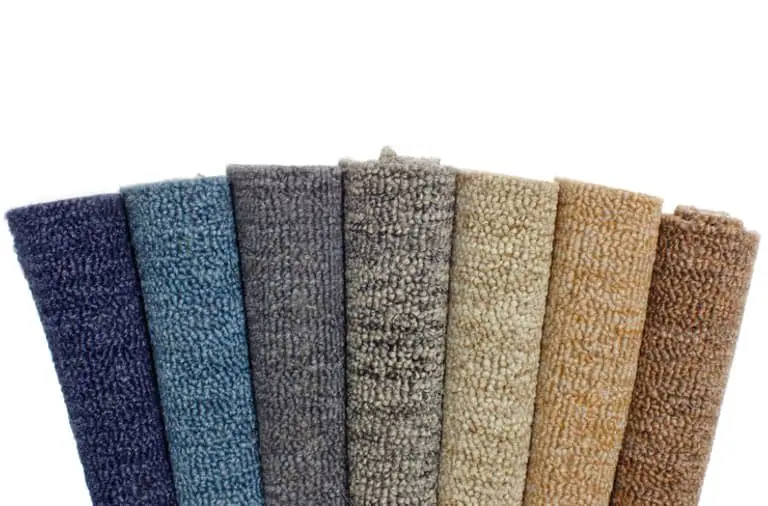Carpet is often one of the first things to show signs of wear and tear in a rental property. Aside from the occasional spills and stains, constant foot traffic can quickly make carpets look worn and outdated. So, how long should you expect the carpets to last in a rental property?
On average, a carpet in a rental property lasts somewhere between 5 and 10 years. Carpet life expectancy can be determined by a variety of factors including the type and quality of the carpet that is fitted, the amount of foot traffic it receives and the care that is taken to maintain it by both the tenant and landlord.
Of course, this is just a general guideline. If you take good care of your carpet and don’t have too much foot traffic, it could last even longer. On the other hand, if you’re not so careful, your carpet could start to show signs of wear and tear after just a few years.
In general, carpets in rental properties tend to have a shorter lifespan than those in owner-occupied homes. This is due to the fact that renters are more likely to be careless with their belongings and to move more frequently. As a result, it is important to select a carpet that is durable and easy to clean.
When it comes to choosing the right carpet for a rental property, nylon and polyester are usually the best options. These materials are resistant to stains and wear and tear, and they can be easily cleaned with a vacuum.
Contents
- Is It landlord’s Responsibility To Replace Carpets?
- How Often Should A Landlord Replace Carpet?
- Tips To Make Carpet Last Longer
- What Is Considered As Fair Wear And Tear?
- What Factors Affect Fair Wear And Tear?
- Do Landlords Have To Replace Carpets In The UK When Asked?
- When Is The Best Time To Replace Carpets In A Rental Property?
- Summary
Is It landlord’s Responsibility To Replace Carpets?
It is typically the landlord’s responsibility to replace carpets. This is because flooring is considered to be part of the “standard equipment” in a rental property, and as such, the landlord is responsible for providing them.
That said, the reason that the carpets need replacing, plays a part in determining who should pay for them. If the carpets are worn due to normal wear and tear, then the landlord will be responsible for paying for new carpets.
However, if the carpets are damaged due to negligence by the tenant (for example, if they spill something and fail to clean it up), then the landlord may attempt to deduct the cost of new carpets from the tenant’s deposit. This will most likely happen when the tenant moves out of the property and before the new tenant moves in.
How Often Should A Landlord Replace Carpet?
On average, a landlord should plan to replace carpets every 7-10 years, or sooner if it starts to show heavy signs of wear and tear. If a tenant damages the carpet beyond normal wear and tear, the landlord may deduct the cost of repairs or replacement from the tenants deposit.
Landlords should also aim to replace carpets between tenancy agreements whenever possible, as this will cause the least amount of disruption to the tenants. Obviously, if a carpet is badly worn during a tenancy period then the landlord should seek to replace the carpet as quickly as possible.
Damage to the carpet caused by the tenant, is often not noticed until the check-out phase of the tenancy. This doesn’t leave the landlord much time to order a new carpet and arrange for fitting before finding a new tenant. So it is worth carrying out a property inspection shortly after the tenant gives notice.

Tips To Make Carpet Last Longer
Here are a few tips to help make the carpet in your rental property last longer:
- Make sure the carpet is vacuumed regularly. This will help to remove dirt and dust that can damage the fibers.
- Place mats at entrances to allow people to wipe their shoes before entering the property.
- Provide a place for people to store their shoes and other footwear at the main entrance, and encourage people to remove their footwear.
- Be careful with spills. If you do spill something on the carpet, make sure to clean it up right away.
- Have a professional deep clean your carpet every 6 – 18 months, depending on the type and number of tenants that are living at the property. This will help to remove any embedded dirt and grime.
By following these tips, you can help to extend the lifespan of your carpet. And, in the end, that could save you money.
I have written a more in-depth article about ‘How To Make A Rental Property Carpet Last Longer’ here.
What Is Considered As Fair Wear And Tear?
There is no precise definition of fair wear and tear, but it is generally accepted to mean the gradual deterioration that occurs as a result of normal use.
For example, thinning areas on a carpet caused by foot traffic would be considered fair wear and tear. But stains or burn marks caused by careless use would not.
What Factors Affect Fair Wear And Tear?
There are many factors that affect how much wear and tear is considered “fair” on an item, including:
- The quality of the item
- The age of the item
- How often it is used
- How it is used
- The condition at the start of the tenancy
- The condition at the end of the tenancy
- The usual life expectancy of the item
- The environment it is used in
- The number of tenants, including children, and pets
All of the above can contribute to how much fair wear and tear is considered normal when assessing items that need replacing.
In general, though, items that are well-made and well-cared for should last for many years with only minor signs of wear and tear.
Do Landlords Have To Replace Carpets In The UK When Asked?
Landlords in the UK are not legally required to replace carpets when asked, although it is always advisable to do so every 7 – 10 years as part of a routine maintenance schedule.
It is important to remember that carpets can become stained and matted over time, which can lead to potential health hazards if not cleaned properly.
If your tenant requests that the carpets be replaced, you should arrange a date and time with the tenant to visit the property and assess the condition together. If the carpet is not heavily worn, and it is less than 5 years old, a professional clean could get the carpet looking like new again.

Also, check with the tenant to make sure they clean the carpet regularly, as they have a responsibility as far as fair wear and tear is concerned to.
When Is The Best Time To Replace Carpets In A Rental Property?
Ultimately, the best time to replace carpets in a rental property is when they start to show signs of wear and tear. By replacing them before they become too damaged, your rental property will remain cosy for current tenants and remain appealing for any prospective tenants.
Ideally, if the carpets do need replacing, it would be easier for everyone involved to replace them between tenancies when the property is empty. This would help to make sure that you are not causing any unnecessary disruption or inconvenience to your tenants.
If it is not possible to replace the carpets during a period when the property is empty, then you should speak to your tenants in advance to let them know that this work will need to be carried out. You should try and schedule the work for a time when it will cause the least amount of disruption.
Summary
Having an idea about how long the carpets in your rental property will last is important as it will allow you to plan and budget for a replacement when needed.
Carpet is often one of the first things that tenants notice when they view a rental property. Not only is it an important part of the aesthetics, but it also affects how comfortable people feel walking around barefoot or in socks.
The type and quality of carpet, the amount of foot traffic, and whether or not tenants have pets, are all contributing factors as to how long you can expect the carpet to last.
For example, low-pile carpets in homes with few occupants and no pets can last for many years before showing significant signs of wear and tear.
In contrast, a medium to high-pile carpet in high traffic areas like entryways and hallways may start to show signs of wear after just a few years.

